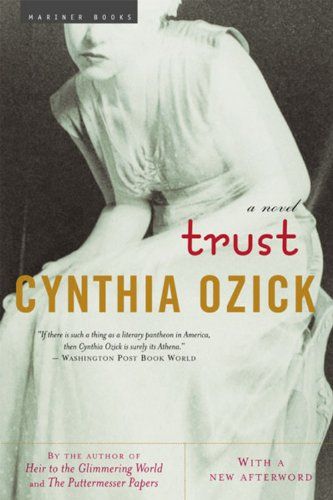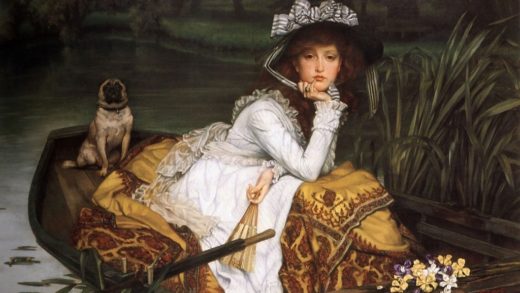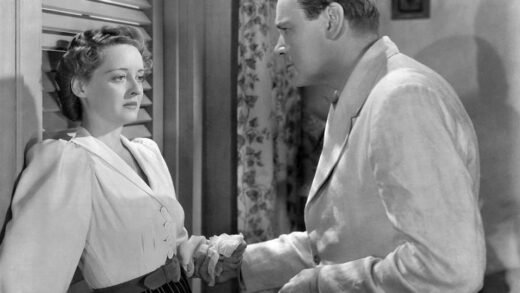Below is a mostly complete summary of Cynthia Ozick‘s Trust, her first novel published in 1966. I have written this as a companion to my review of the novel. However, I have also included noteworthy passages from the first and fourth parts of the novel.

Ozick’s “Trust”, Part One: America
Cynthia Ozick’s Trust begins by introducing the narrator about to be feted before a trip to Europe. Although she’s completed college and apparently quite well read, the trip to Europe is the next important step in her own graduation to maturity.
But from the beginning, the novel confounds our expectations for a twenty-something woman recently graduated from college. She neither aches for her independence nor expresses it in her relation to her parents, the persons from whom she presumably strives for independence. To the contrary, it is her mother who’s planned the party and who has invited all of the guests (none of whom the narrator knows as friends—in fact, if the narrator has any friends, there is no moment in the novel in which the reader learns as much.
The narrator lives with her mother Allegra and (stepfather) Enoch, but the stepfather, who seems like the patriarch well inserted in wealthy American blueblood life, has pointedly renounced any suggestion of paternity. It would be better to say that Enoch is her mother’s husband, not her stepfather. Allegra, on the other hand, may admit maternity but not through intimacy and love.
The party is a sort of non-event that the narrator attends but without almost anyone knowing that she is the veritable belle of the ball. Allegra is sick and therefore cannot attend. As a consequence, no one can introduce the narrator to anyone and anyone who meets the narrator does so accidentally. The only guest she seems to recognize (and who recognizes her) is William’s son—another progeny without a Christian name—but one that apparently shares her last name. He’s brought his date and neither show much interest in the narrator. William was Allegra’s first husband yet is not the narrator’s father. It’s not clear why she shares his last name.
William is also Allegra’s lawyer and the executor of her tremendously wealthy estate. Her trust, if you will.
The party is over, and circumstance has cancelled the trip to Europe. But by this part of the book we have learned of another non-person, Gustave Nicholas Tilbeck, who is apparently the narrator’s father, but she knows nothing about him.
Part Two: Europe
The second part of Ozick’s Trust turns back in time to the narrator’s youth when she and her mother had followed Enoch through the post-war Continent. The narrator is now not even a teenager but still deserves little of her mother’s attention. Instead, the narrator is attended by a governess profoundly resenting the failure of the Allegra’s largesse to be extended to her brother, a young man in the prime of his life when the world is only recovering from destruction.
Enoch works as some kind of American functionary accounting for lives taken by the Nazis outside the field of battle. Although the word is not used, Enoch is recording the Holocaust. We have already learned he is a Jew and this lowers his status somewhat. Allegra and her daughter seem well aware of his diminished powers in a world where American blue bloods (precisely the people for whom the Nazi would have fought) exercise sovereignty.
The mystery of Gustave Nicholas Tilbeck is here undeveloped, but the narrator seems to know that he is someone even if she does not know that he is her father. Tilbeck appears and is overheard by the narrator in dispute with Allegra and Enoch. By all indications, Tilbeck is blackmailing Allegra, although it is not clear why. Presumably Tilbeck was Allegra’s second husband and the narrator’s father. But how then is he defending a claim to be paid?
Tilbeck has seduced the governess, we learn, and then the governess—the one person for whom, even though she is not treated well by her, the narrator seems to bear some affection—is dismissed.
Part Three: Brighton
The third part of Trust begins in the present in the United States (the late 1960s), with the narrator committed to Tilbeck (this phrasing is not carelessness). This is the circumstance that cancelled her trip to Europe.
But before the narrator can go to Tilbeck for whatever unclear reason, before she has to go to Tilbeck, she decides to go to William, her mother’s first husband and the executor of her estate, to learn about Brighton, where she was conceived.
The narrator appears at a party at William’s law firm for the same son earlier met who has recently become engaged. She has not been invited, but she’d gone to the firm only with the intention of finally learning everything from William.
The story begins with Allegra marrying William. It is not that there is much of a spark between them, but they seem to be from the same quasi-aristocratic circles and their marriage is very much expected. Yet quickly the marriage’s convenience is tested as Allegra invites so many leftists to her father’s property. It is a party, and a party. William comes from the Republican stock that Allegra seeks to escape and so has no party with this party.
The marriage dissolves but not before Allegra has gone to Brighton (England) in the late 1930s with several men including both Tilbeck and Enoch. The latter is merely a friend, but Tilbeck is the mentor guiding Allegra as she writes her novel. The narrator is their love child, except that Tilbeck quickly departs when it is clear that Allegra is pregnant.
Finally it is clear, the narrator is born out of wedlock and therefore without paternity. Tilbeck is the biological but not the legal father. She is illegitimate.
Part Four: Dunacres
So why had Allegra married Enoch, this man who was merely a friend and who was in no way a romantic interest (he’s described as well-proportioned, short, and balding)? Because the narrator needs a father. Again Allegra has entered a marriage of convenience. Of course, this makes one ask why the narrator bears William’s surname (again, the narrator never learns what it is) rather than Enoch’s, but presumably his pedigree made this impossible (but then why did she marry Enoch?! … William had remarried and therefore wasn’t available?).
Enoch appears about to be made an ambassador to a certain South American country. But for the Congressional hearings to go off without interruption, Tilbeck requires the narrator. This is a strange thing, but Allegra throughout the novel has sought the position that went with being an ambassador’s wife (this, even though we learn that she is incredibly wealthy). And Tilbeck threatens this, making his silence require the presence of the narrator, his child in whom he had never before shown the slightest interest.
So the narrator goes to Dunacres, her maternal grandfather’s island property in the Long Island sound, where Tilbeck has been living without permission. Finally, the narrator will meet her father.
He is, in short, a disappointment to the reader and every sane person. Yet clearly he wields some power over all womenfolk, and the narrator, his own progeny, is no exception. He lives like a hobo on the island, but has even invited some temporary guests of a Quaker family but days from a missionary trip to Pakistan, giving them the impression that the island is his.
This Quaker family, the Purses, functions as a kind of surreal departure from all of the seriousness of the rest of the novel. The couple has seven children, all of whom are named after famous figures of non-violence and civil disobedience (for example, the first we meet is Henry David Thoreau Purse).
The Purse episode—really just a detour—is a comic interlude in which the name Purse is the object of every conceivable pun delivered my mother Purse (lacking a first name) and reiterated with pleasure by the older Purse children. What function the Purses play in the novel otherwise is not clear, if not to again underline the animal attraction that Tilbeck exercises over all women. Mother Purse is a conquest.
It should go without saying that a novel called Trust that has a Purse family as characters seems à propos, if gauche.
Tilbeck may or may not have seduced the narrator. But the day after she arrives, so does William’s son and his fiancée Stephanie. They had sought the abandoned island for the privacy needed by those not yet married.
In the novel’s only sex scene, Tilbeck beds Stephanie. It is worth saying that there is nothing in this sex scene that bears resemblance to any other such description. Although the reader knows what is being described, Ozick does not force the reader to suffer all of the clichéd descriptions expected.
And then, Tilbeck is dead. He’s drowned. And Enoch was made ambassador for just hours before the United States denied recognition to this unnamed South American country. So Enoch has been humiliated and with him Allegra. But Allegra now has no reason to remain with Enoch and so leaves.



